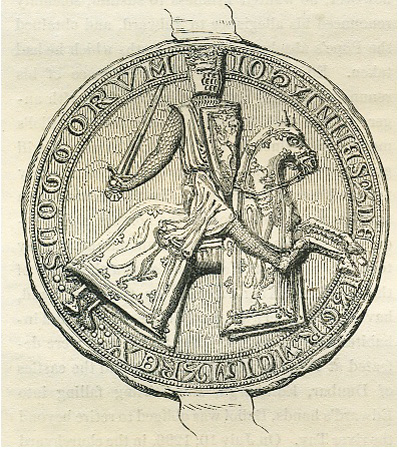
A Wee Bit O’ History - Lifetimes of Will-o-Rule
by Norman Turnbull
Turnbull Clan High Shenachie
We all know the story of Will-o-Rule but not much about his lifestyle up to the point of him saving the life of Robert The Bruce To get some idea we must look at the life of James Douglas and Robert The Bruce.
Firstly, I would like to speak about James Douglas. I have recently read a book which was written by David R Ross called ‘’The Black Douglas.‘ He, in turn gathered his information by studying the works of John Barber, Archdeacon Of Aberdeen(1316 - 1395) who wrote a great work on Robert The Bruce, around 1370. He gave details of many of James Douglas’s exploits, allowing us an insight into the life and times of that era.
Like many in his time, it is difficult to tell when this young man was born. His mother, Elizabeth, who was the sister of James the high Steward of Scotland (Note: the moniker ‘’Steward ‘’ would soon be corrupted to ‘’Stewart,‘’ and that family, through marriage to Bruce’s daughter, would become the ruling house of Scotland) died at the end of 1288 so it is obvious he was born before then. In 1297 he was called “a little boy” when he was required as a hostage by the English, so his birth could not have been too many years before his mother’s death.
Tradition states that he was born in the year of Alexander the III, King of Scots, who died in 1286 so it may not be too far from the truth. James’s likely birth place was Douglas Castle, near the village of Douglas, in Lanarkshire.
Alexander III was buried in Dunfermline Abbey. The throne should have gone to his granddaughter Margaret, The Maid of Norway, but she took ill on her voyage to Scotland and died in Orkney. She was a weak and sickly child This meant there was no clear heir to the throne of Scotland.
Margaret was taken back to Norway to be buried in Bergen Cathedral. There was a real threat of civil war in Scotland, many of the powerful nobles having some royal blood in their veins, and all eyeing up the chance to take power by claiming the crown.
Who better to choose a king than another king? Bishop Fraser of St. Andrews wrote to the king of England asking him to arbitrate. Edward, the King of England, was the brother-in-law of King Alexander and the Scots did not see the stormy clouds gathering. Up to this point Scotland and England had been reasonably good neighbours. Edward came north to Norham Castle on the English side of the river Tweed to ponder the problem.

Although there were many claimants to the throne there were only two real contenders, one was John Balliol and the other was Robert The Bruce, grandfather of the future King. Both of them were close relatives of the blood royal.
The English King had a hidden agenda where Scotland was concerned and Edward chose Balliol.
After a while he started to browbeat Balliol as if he was an underling so Balliol went into mutual alliance with France. In Scotland today they call this ‘’The Auld Alliance.” Edward was outraged as he saw Scotland as his “sub kingdom,” and gathered his army to teach the Scots a lesson.
Crossing the fords at Cold stream, his invasion force crossed the river Tweed, which marks the border between England and Scotland, on the eastern side of the country.
This act opened the Scottish Wars of Independence. Edward marched his force east to Berwick-on-Tweed, at that time the largest town in Scotland, with a population of about 18,000 inhabitants. They appeared before the town on Friday 30th March 1296.
Edwards men easily managed to breach the walls that surrounded the town, and the horrific slaughter began. For three days the English killed anyone they found, regardless of age or sex. It is reported that some 15,000 lives were lost. Edward only called his men off when he saw a woman in the act of childbirth being dragged from her home and butchered by one of his soldiers.
The sack of Berwick is a huge stain in our history, the most brutal slaughter ever carried out in these islands, and forever a warning to the Scots of what English involvement could mean.
From Berwick to the clearances, to the closure of our industries, that involvement has never been to Scotland’s weal, no matter how unionists may protest otherwise.
